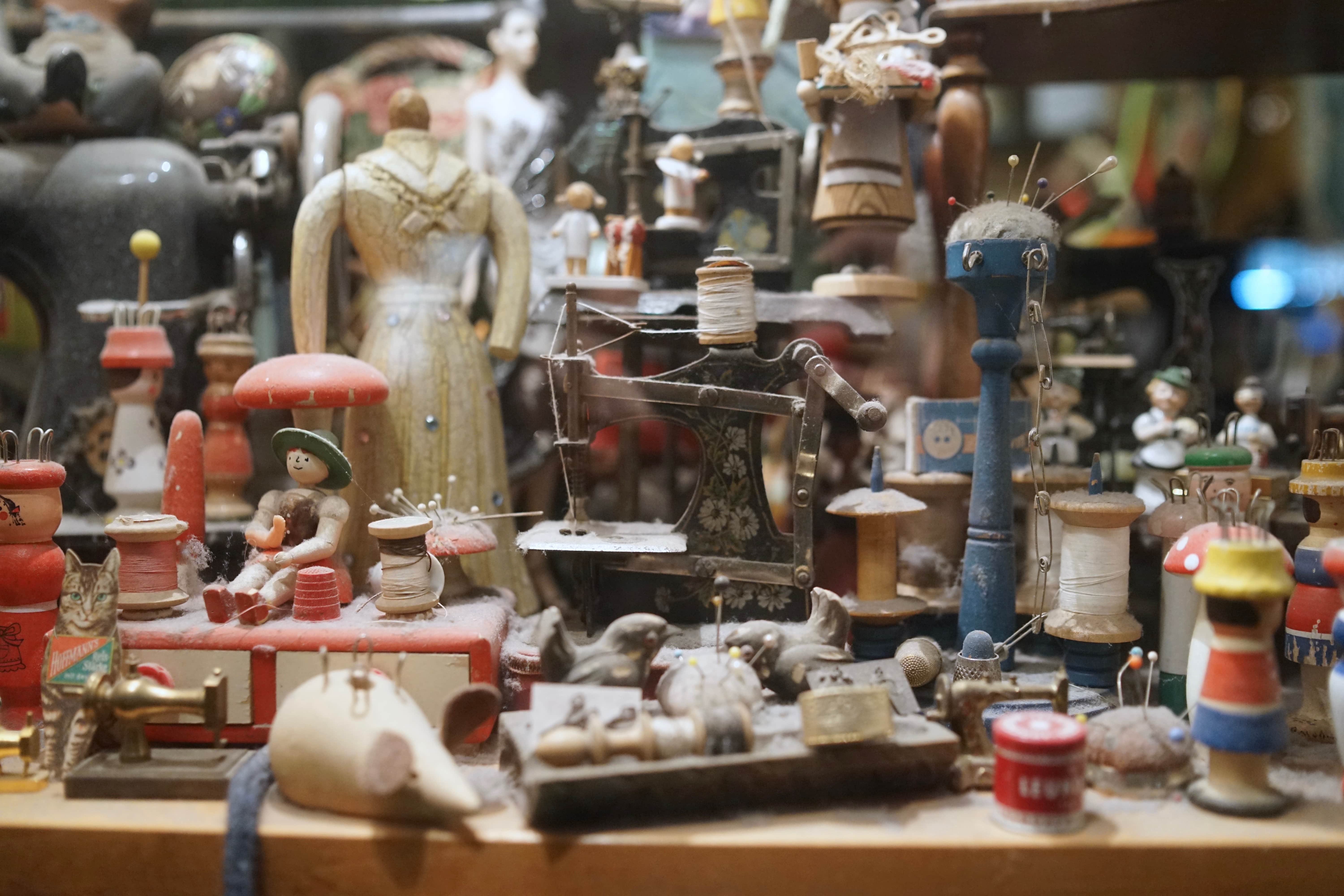Inheriting a collection of heirlooms, antiques, and collectibles can be both a blessing and a challenge. While some items may hold sentimental value, others may not fit your lifestyle or taste.
When inherited items begin to feel like just “stuff” cluttering your home or sit in a storage unit with no plans, it may be time to consider releasing these items.
Donating or selling them are both great options. But where do you start and how do you make a decision that honors the person who passed the items to you? Well, that’s exactly what we will cover in this article today.
As a company that has worked with estates for years, we want to help you navigate the process.
Is It Wrong to Get Rid of Heirlooms and Collectibles?
It’s worth first addressing the feeling of guilt when getting rid of inherited items. Many people feel guilty about letting go of inherited heirlooms, fearing that they are dishonoring the memory of their loved ones. However, keeping something out of obligation rather than genuine appreciation can feel like a burden.
Ask yourself if the item truly brings you joy or if you are simply holding onto it because you feel you should. Would your loved one want you to keep something that doesn’t serve you? Would they want their collection sitting on a shelf collecting dust or going to someone who will value it?
Instead of keeping everything, consider ways to honor the memory without holding onto the physical item—taking a photo, passing it to another family member, or repurposing it in a way that makes it more meaningful to you.
Recognizing When It’s Time to Let Go
For some, it can feel wrong to let go of the things left behind by a loved one. With time, you may feel less inclined to hold onto those items.
It can be difficult to decide when to part with an inherited item, but there are a few signs that indicate it may be time to move on. Here are some questions to ask yourself to discover if it’s time to let go:
- Has the item been stored away for years without use?
- Is it taking up valuable space and becoming clutter?
- Does the collection bring you more stress than joy?
Ultimately the decision will come down to you. But if the inherited items begin to feel more like a burden then it might be time to consider selling or donating them.
Additionally, if selling the item could help you financially or benefit someone else more than it benefits you, letting go can be a positive step forward.
Selling vs. Donating: What’s the Best Choice?
Deciding whether to sell or donate your inherited items depends on several factors.
If an item has significant financial value and you want to get the most from your inheritance, selling may be the best option. Some feel bad gaining financially from their loved one’s heirlooms but selling doesn’t diminish your love or honor for the individual.
However, if the item has sentimental significance but doesn’t fit your lifestyle, donating to a museum, historical society, or charity could be a meaningful way to preserve its legacy. Some people choose a combination of both approaches, selling valuable pieces while donating those that may benefit others more than themselves.
Most choose the latter and sell what they can then donate the rest. Once again, the final decision depends on your personal preferences.
Exploring Your Selling Options
Deciding whether to sell or not is the easy part. The challenge comes in knowing the best way to sell your items. Fortunately, the best ways can be summed up relatively easily.
Selling to a professional estate buyer (like us here at Sanford and Son) is one of the fastest and easiest ways to go about it. An experienced buyer will offer a fair market value based on condition, rarity, and demand, giving you an upfront offer without the hassle of listing and negotiating.
If you’re willing to put in more effort for a potentially higher return, online marketplaces like eBay, Etsy, and Facebook Marketplace allow you to reach a large audience. However, selling online requires taking high-quality photos, writing detailed descriptions, setting competitive prices, and handling shipping. Not to mention it’s easy to get ripped off, so if using this option proceed with caution.
For high-end or rare items, auction houses may be a good option. Some specialize in fine art, vintage jewelry, or rare coins and can connect you with serious collectors. Keep in mind that auction houses take time, and fees may apply.
Lastly, if you have an entire estate full of collectibles or other items you may want to consider an estate sale. This option takes time to setup, promote, and manage but it can be an efficient way to liquidate a large number of assets.
Each option has its advantages depending on your needs. There’s not often a right or wrong answer rather it’s finding what works best for you.
Ready to Sell Your Unwanted Heirlooms? -Get a No-Obligation Offer
If you’re looking to sell estate items and want a straightforward, professional experience, reach out to us today. We’ll evaluate your collection and make a competitive offer, helping you turn unwanted heirlooms into cash with ease.
We serve the residents of Maryland and specialize in purchasing a wide variety of estate items, including antique jewelry, old coins, vintage collectibles, and more. We offer fair market prices, quick transactions, and a stress-free experience.


